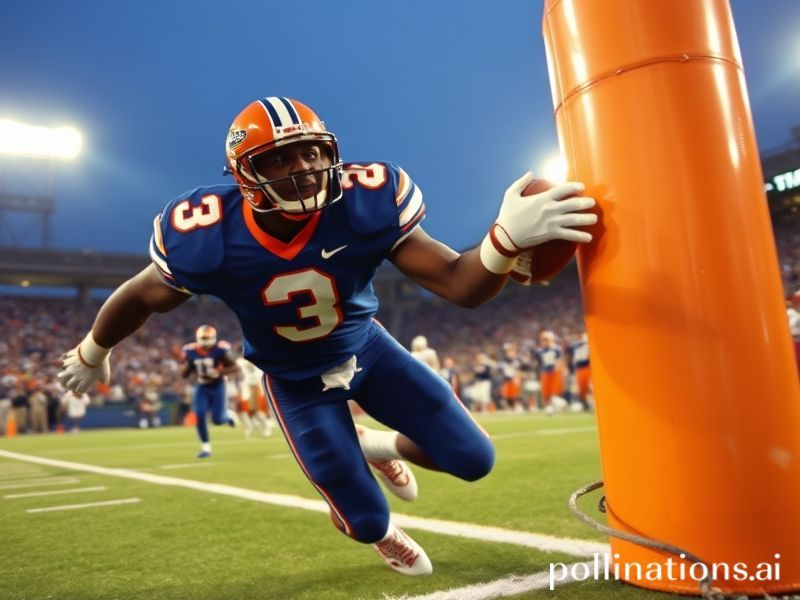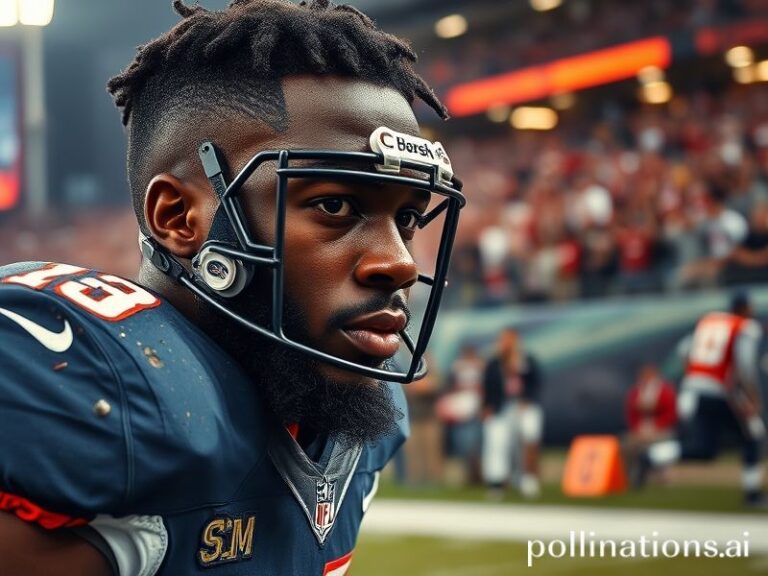Ike Hilliard: How One NFL Journeyman Became the World’s Most Unlikely Soft-Power Ambassador
Ike Hilliard: The Quiet American Who Taught the World to Catch—and Then to Coach—Before We All Dropped the Ball
PARIS—Somewhere between the Champs-Élysées and the 7th arrondissement’s latest pop-up absinthe bar, it’s easy to forget that the fate of American football occasionally hinges on a man named after a U.S. president and a smallish European nation. Yet Ike Hilliard—ex-Florida Gator, ex-New York Giant, ex-Tampa Bay Buccaneer, and current whisper-network guru to every wide receiver who can run a 4.4 forty—is the rare export who never needed a passport to achieve global resonance. His career arc is a neat parable for the twenty-first century: spectacular early promise, mid-career collateral damage, late-stage reinvention, and finally a coaching diaspora that now stretches from the Carolinas to the Arabian Gulf, where the Saudi-backed Qatari Falcons reportedly pay him “consultant fees” that could ransom a minor royal.
Let’s rewind. In 1997, Hilliard was the human highlight reel who made Danny Wuerffel look like a Heisman-worthy philosopher-king. NFL scouts, those itinerant gamblers in team-logo polos, crossed oceans to squint at grainy VHS tapes because, back then, broadband was a rumor and the Cold War had just ended in overtime. The Giants bit, drafted him seventh overall, and New York tabloids celebrated like the UN had brokered lasting peace. Two broken vertebrae later—courtesy of a turf that felt imported from Chernobyl—Hilliard learned what every global citizen eventually does: gravity and insurance adjusters speak a universal language.
But here’s where the story pivots from American footnote to international object lesson. While Europe busied itself inventing the euro and misplacing entire economies, Hilliard quietly perfected the art of the comeback route. By the mid-2000s he was the NFL’s answer to a Swiss bank account: reliable, modestly glamorous, and impossible to subpoena for excessive celebration. Then, like any sensible person staring down mortality and CTE studies, he retired into the witness-protection program known as “assistant coaching.”
Fast-forward to the present. Hilliard’s résumé now reads like a Bilderberg attendee list: Washington Commanders (where hope goes to file paperwork), Florida Gators again (because nostalgia sells), and—most deliciously—the perpetually rebuilding Birmingham Stallions of the USFL, a league whose acronym most Europeans assume is a new sanctions regime. In January, the Saudi-Qatari joint venture “MENA Gridiron Initiative” flew him to Doha to teach seven-foot-tall rugby defectors how to high-point a fade ball without violating any fatwas. The optics were perfect: an American teaching the finer points of the post route while the host country simultaneously bought Newcastle United and scheduled the 2034 World Cup. Somewhere, Henry Kissinger felt a twinge of envy.
Why should the planet care? Because Hilliard’s journey tracks our own geopolitical whiplash. He debuted in the unipolar moment, got injured during the dot-com bust, retooled during the forever wars, and now dispenses wisdom in an era when “league” is a fungible concept. His coaching tree—sprawling from Baton Rouge to Riyadh—mirrors the way soft power actually works: not via aircraft carriers but through micro-camps, private Zoom installs, and the occasional subtle bribe disguised as “performance bonus.” When a Senegalese sprinter converts to slot receiver after bingeing Hilliard’s YouTube footwork drills, that’s cultural imperialism with better analytics.
Meanwhile, back in the land of the free, youth participation in tackle football is declining faster than the ruble, yet fantasy football revenue now rivals the GDP of Latvia. Hilliard straddles that contradiction like a veteran sidestepping a safety blitz: he’s simultaneously selling the dream and warning about the fine print. Asked in Abu Dhabi last month whether children should play the sport, he deadpanned, “Only if they’re planning to coach it later.” The Emirati journalists laughed politely; the European scouts scribbled notes; the American embassy staff pretended not to hear.
So here we are. The world burns, cryptocurrencies evaporate, and Ike Hilliard keeps running clinics in climate-controlled domes that feel increasingly like fallout shelters. His legacy may ultimately be a cautionary tale wrapped in a success story: talent exported, body imported back in pieces, wisdom franchised like a fast-food chain. In that sense he’s the perfect envoy for America circa 2024—limping, wiser, but still convinced the next play-action pass can fix everything. And honestly, who among us, clutching our third passport and fourth streaming subscription, can say we’re any different?







